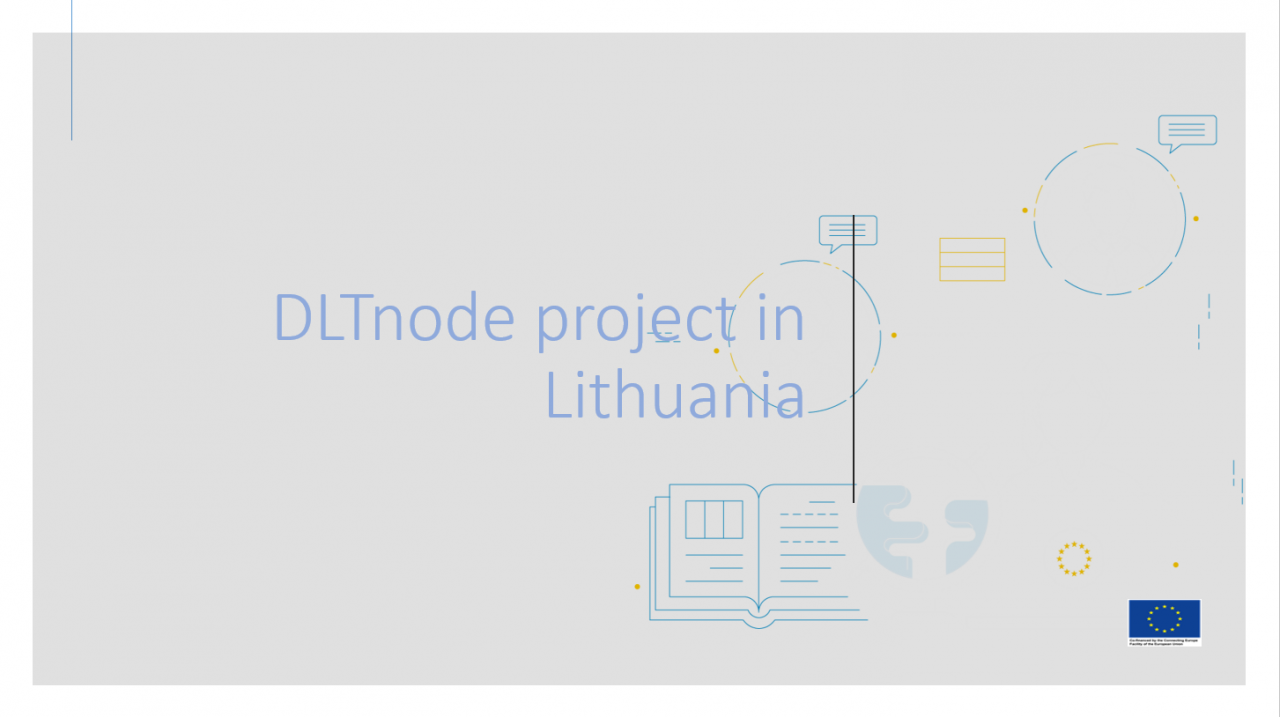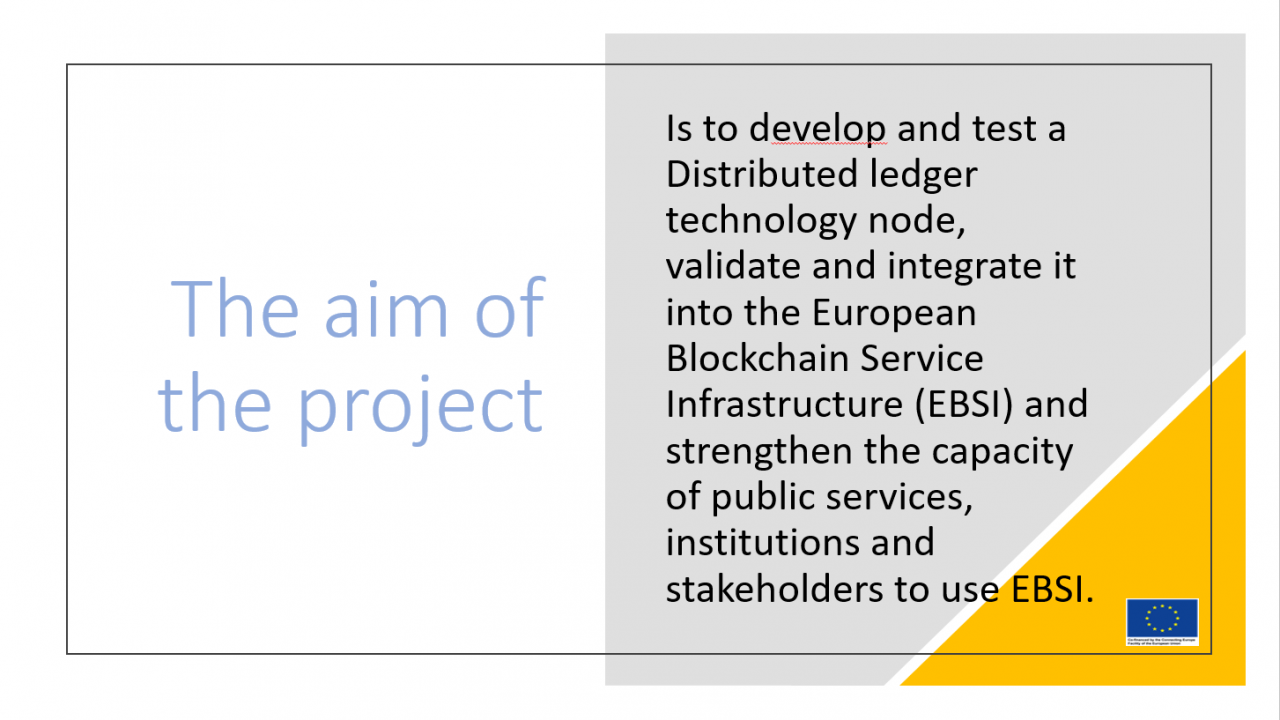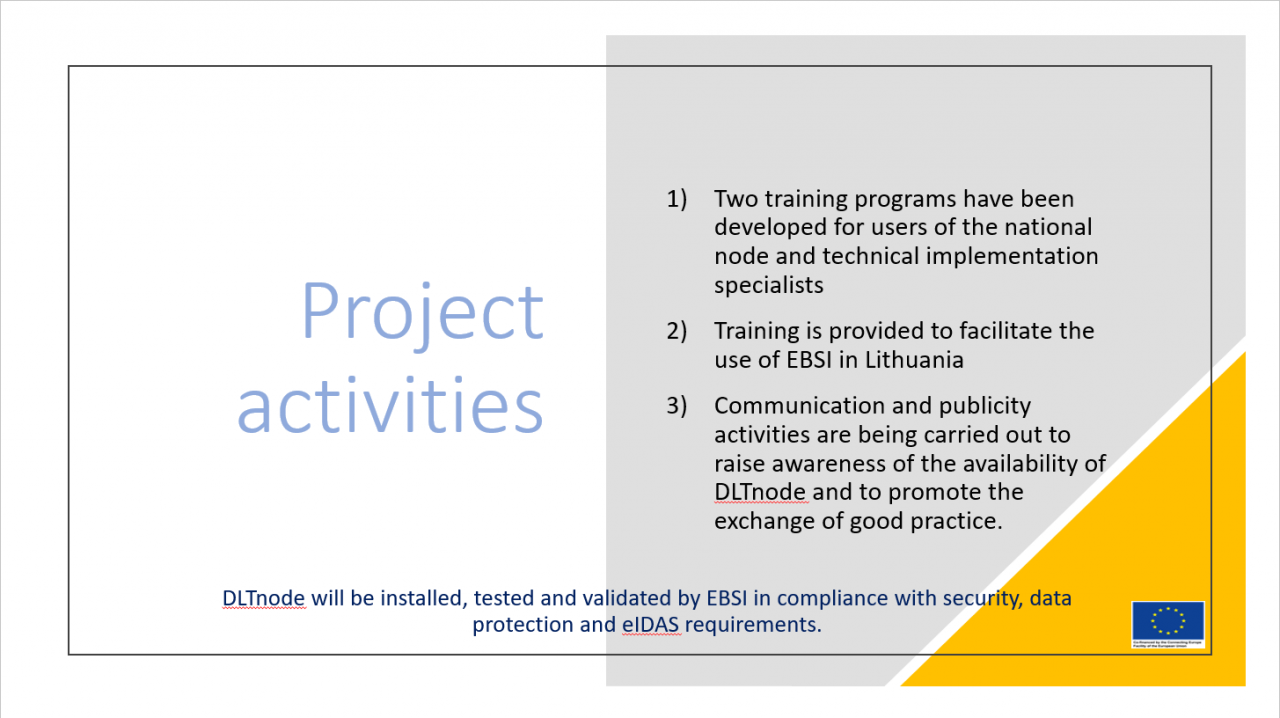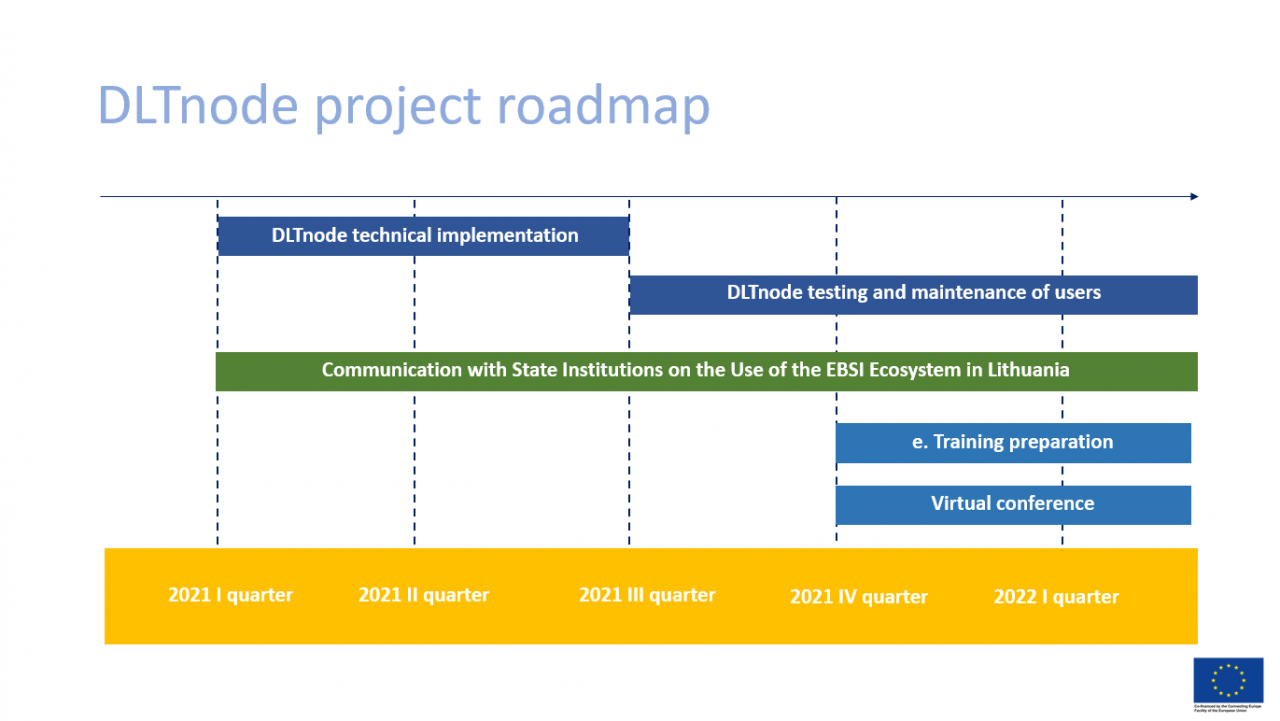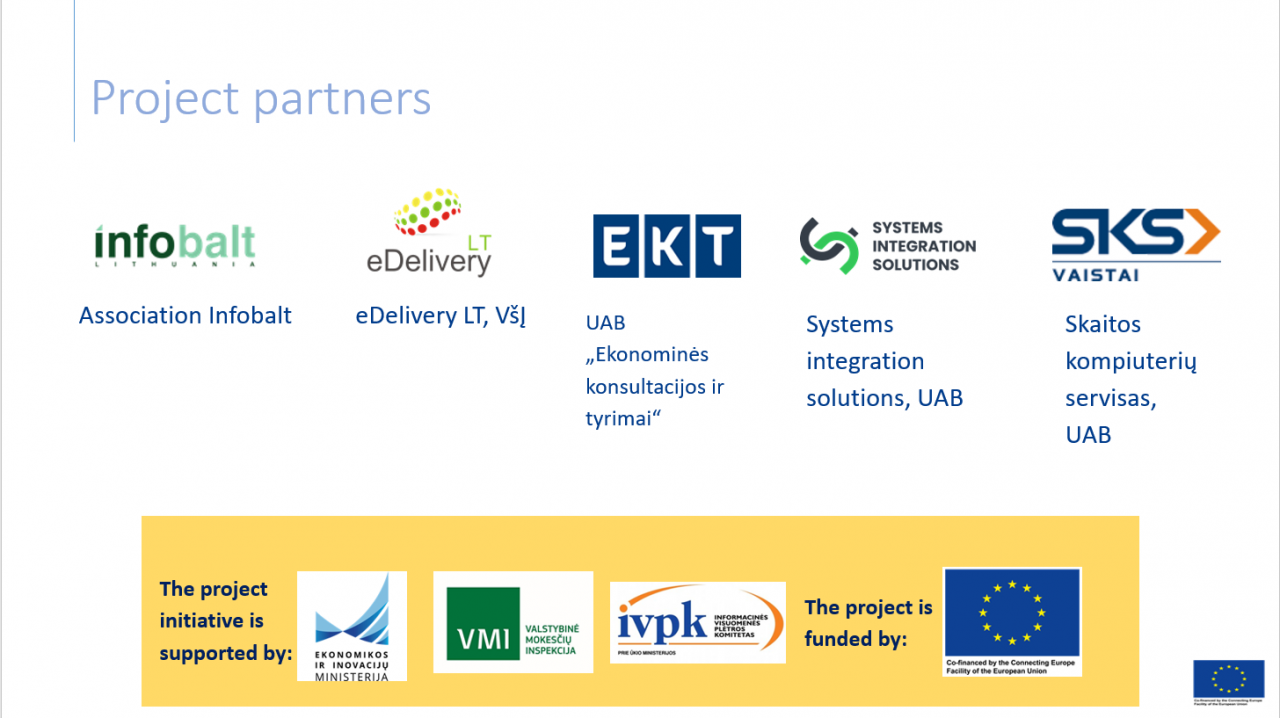Call for Action
EBSI ecosystem could contribute to Lithuania's strategic goals of creating an innovational society and economic affairs in discussions and stakeholders and examining how existing public and commercial services can be enriched by digital innovation. For example, a citizen would be able to connect to public service (non-Lithuanian) systems using the responsible Lithuanian authorities (e.g. the population register) approved by a secure self-identifier (self-sovereign identification) in his cryptographic repository (wallet). Such a repository can store a driver's license, university diplomas, and much more, letting stakeholders digitize their sentences.
What is in this for Lithuania's Public Authorities and businesses?
For starters, we are looking for an institution, which would take part in this project. We promise to help and guide you throughout the whole process. How are we going to help? We will write you a roadmap for testing, give recommendations for further developments and give you a chance to test your pilot cross-border.
For more information click down below. Have any questions? Contact us!
Lithuania's Involvement
Lithuania’s participation in the Single Digital Market offers an opportunity to join EBSI – just the DLT node set-up is needed. On the other hand, the DLT node set up in Lithuania will also affect the Single Digital Market as an additional EU channel for data exchange or tracing.
A sufficient number of EBSI nodes across the EU may lead to greater standardization in use-cases: the current and to be proposed, and this may lead to better accessibility & simplicity in end-use – for citizens, businesses, or public authorities.
DLT node integrated with EBSI will enable interoperability among bodies in EU member state and Lithuania to provide trusted, secure, reliable share with information – incoming & outcoming documents’ flows, tracing and monitoring EU wide without intervening into work of the institution of other countries.

